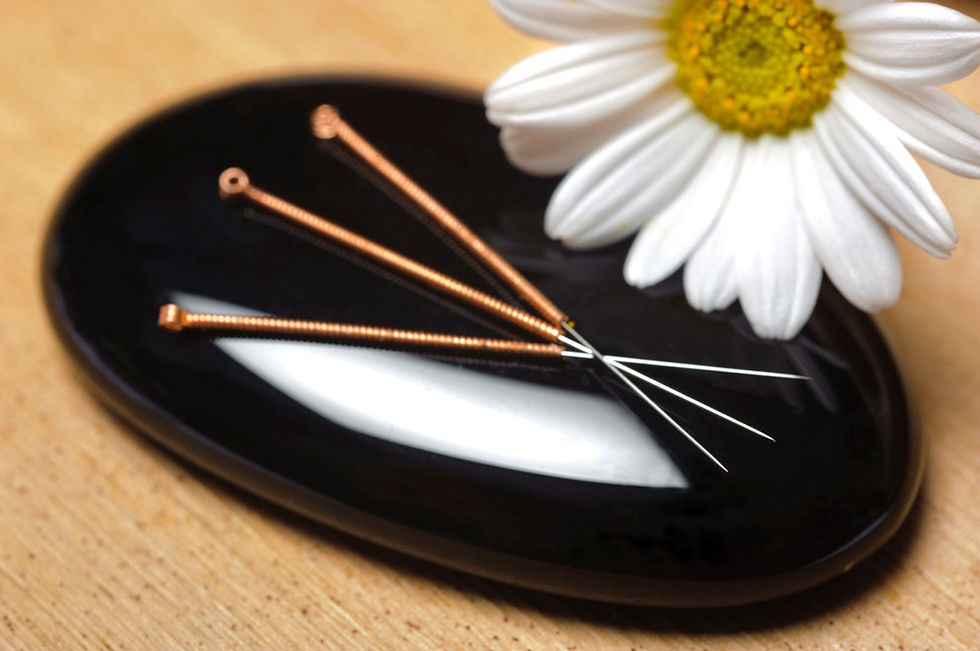5 Simple Steps to Reversing PMS
- lxu217
- Oct 26, 2020
- 3 min read
The bad news about PMS –
75% of women experience symptoms of PMS.
25% of women have symptoms so severe they need medical treatment.
PMS affects all aspects of your life – relationships, work life, and well-being – with these common symptoms:
• Mood swings
• Irritability
• Depression
• Anxiety
• Bloating
• Breast tenderness
• Fluid retention
• Headaches
• Sleep disturbances
The good news – you can do something about it!
PMS is caused by hormonal imbalances.
The two primary hormones in the second half of your cycle are estrogen and progesterone. If these hormones are out of balance – if their levels are abnormal or fluctuating – you will have PMS. Hormonal imbalances are caused by bad habits, and those habits can be changed.
Things like sugar, caffeine, and alcohol all contribute to hormonal imbalances. Lifestyle factors also play a role, including sleep and exercise. Getting additional help from supplements, herbs, and acupuncture can go a long way in relieving PMS.
5 simple steps to reversing PMS:
1) Clean up your diet:
• Get the sugar out and lower your carb intake
• Eating sugar and carbs is the leading cause of hormonal disruption. In our clinic it is the one change that will make a huge difference for everyone. Using an app to track your macronutrients – carbs, protein, and fat – can help you to dial in the proper ratios. We recommend 40% carbs, 30% protein, and 30% fat as a starting point. Some women find they do better on a lower carb ratio of 20% – 30%.
• Reduce or eliminate caffeine
• Caffeine will contribute to irritability, insomnia, and is a big factor in breast health. Removing caffeine is especially important for women with breast tenderness, breast lumps, or any breast concern.
• Reduce or avoid alcohol
• If your moods are a big problem, think about reducing or eliminating alcohol. Alcohol can aggravate mood swings, depression, and fatigue, and the sugars in alcohol cause hormonal imbalances.
2) Take supplements targeted to reduce PMS:
• Prenatal multivitamin – I recommend a prenatal for all women who are having menses, as they are formulated to support women during this phase of life.
• Omega 3 essential fatty acids, aka fish oil – reduces pain, helps balance hormones, and is excellent for brain health.
• Vitamin D – helps with fighting depression and stabilizing moods.
• Magnesium – good for treating water retention, tense muscles, and headaches.
• Probiotics – great for gut health, digestion, bloating, and abdominal pain.
3) Get moving!
• Exercise can make a huge difference in PMS, and it can be as simple as walking 30 minutes a day, 4 – 5 times a week.
4) Acupuncture works wonders for PMS
• In the world of eastern medicine and acupuncture, it’s all about flow. How well is your blood and energy circulating? If there are blockages, you get symptoms. Irritability, mood swings, breast tenderness, abdominal bloating, and menstrual pain are all caused by blocked energy. Acupuncture works to improve the circulation in your system. Whether it is your blood or your energy, acupuncture helps to get things moving.
5) Chinese herbal medicine can be highly effective at reducing the symptoms of PMS.
• Chinese medicine has been using herbs for centuries. One of the most common formulas for PMS is known as “Free and Easy Wanderer”, or Xiao Yao San. This formula is over 700 years old! In Chinese herbal medicine we work with formulas that are made up of several herbs, rather than using just a single herb. This makes the impact of the formula more comprehensive, as a combination of herbs can address more things than a single herb can accomplish by itself. The art of prescribing herbal medicine is a long standing tradition that takes years of study to master. Formulas will be tailored to an individual, personalized to specifically resolve their version of PMS.
If these five simple steps aren’t getting the job done for you, there is more we do with our patients to help further understand what is causing their version of PMS, and then effectively treating it:
• Lab testing for things such as hormones, blood sugars, and vitamin D
Personalized treatment plans that prioritize what are the most important steps for you to take!




Comments